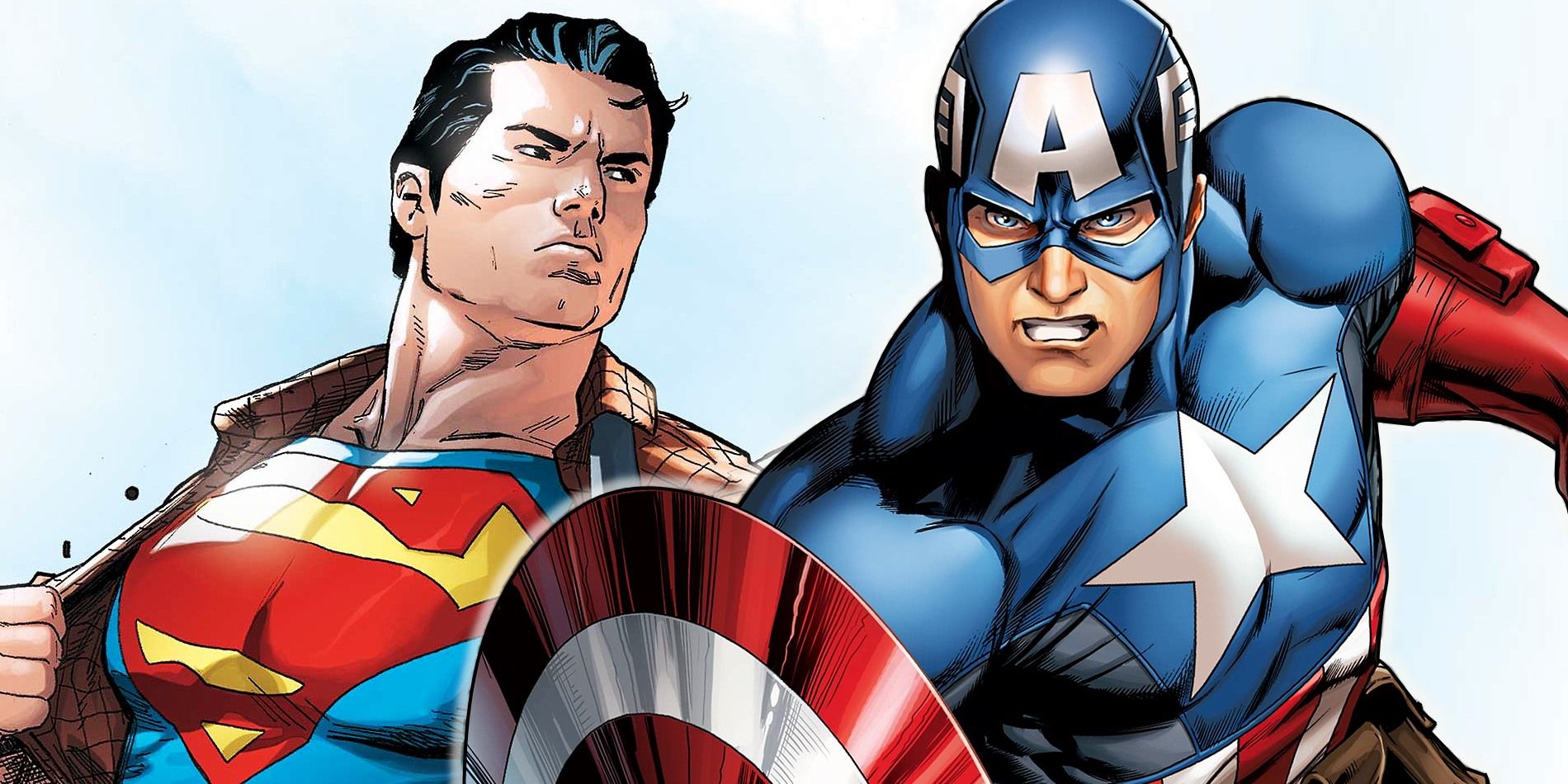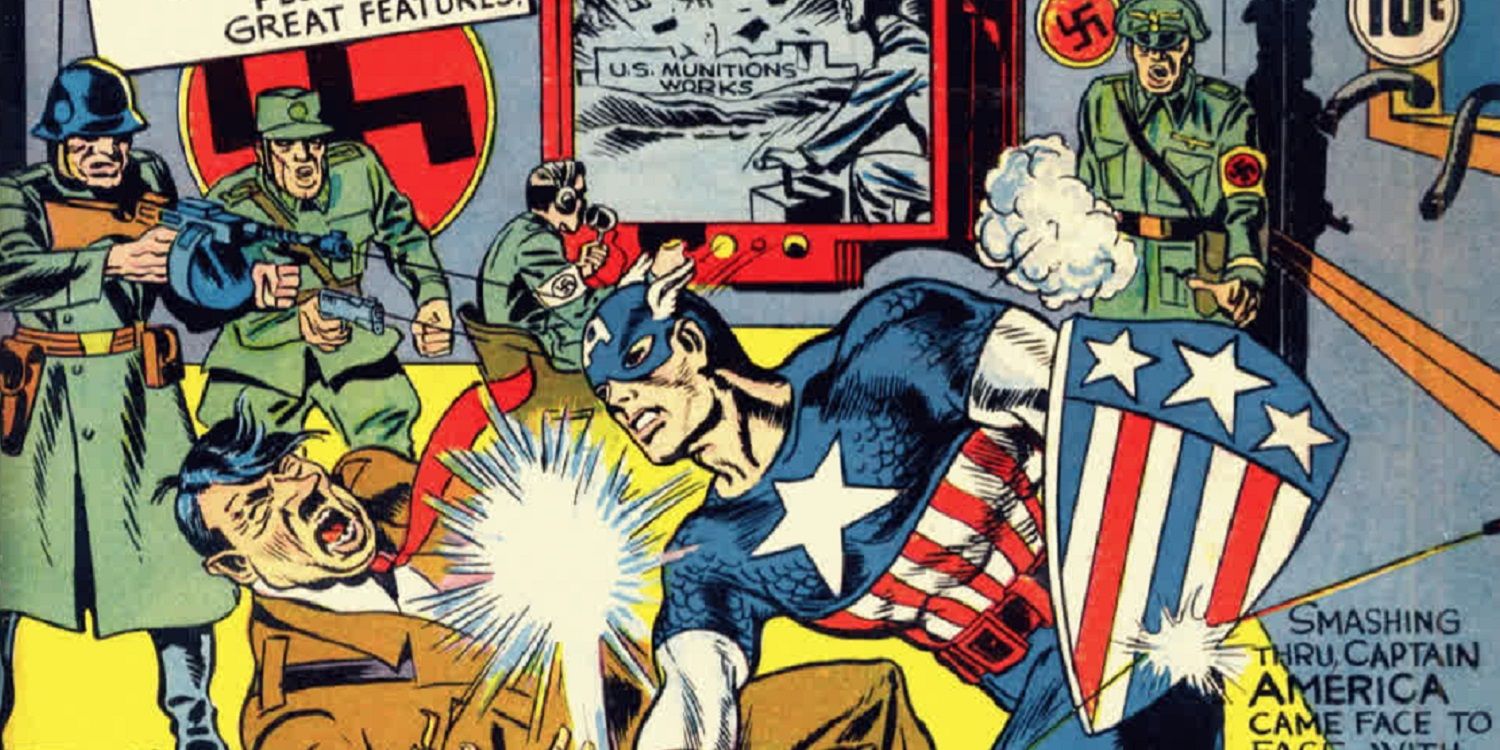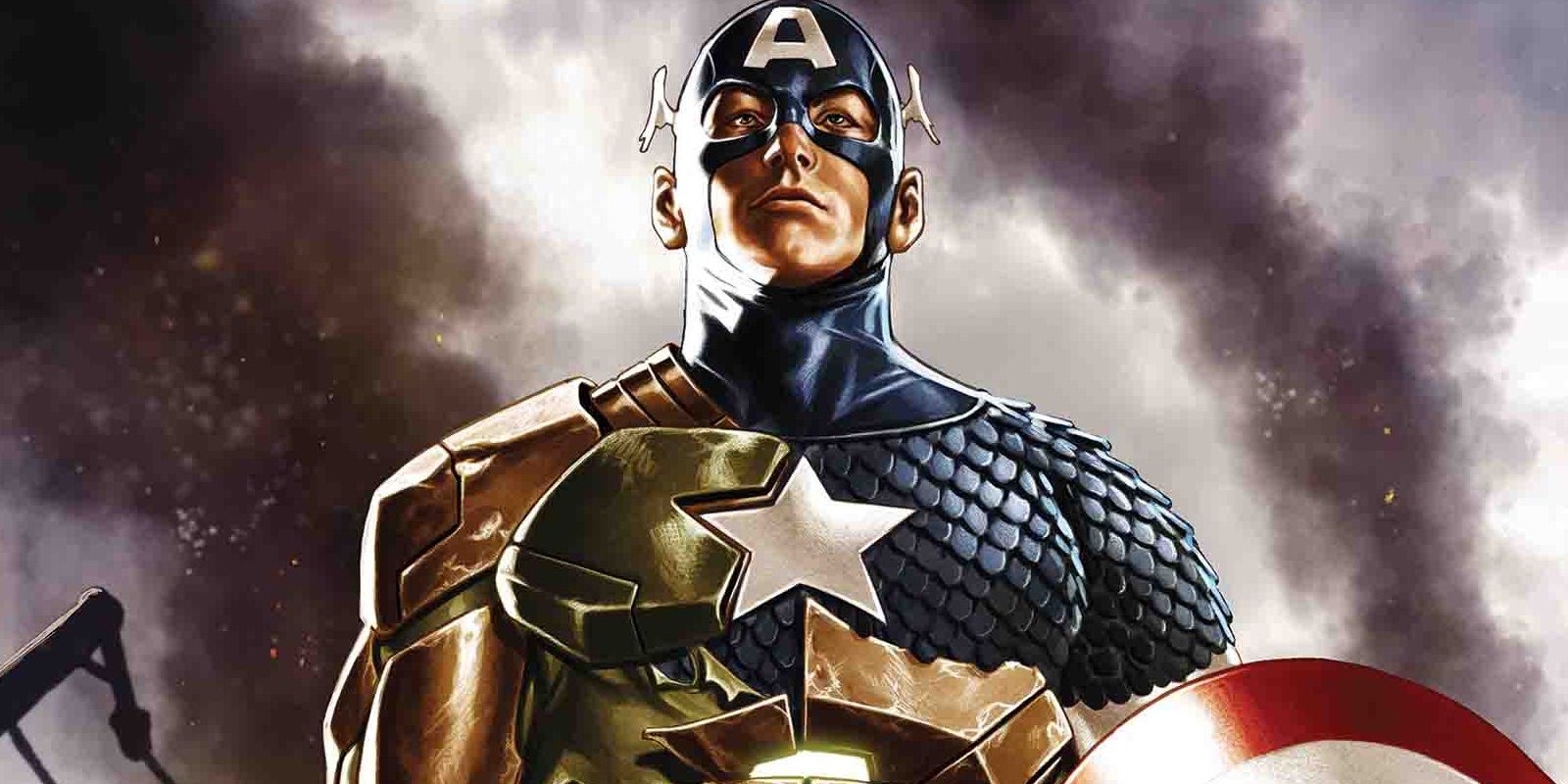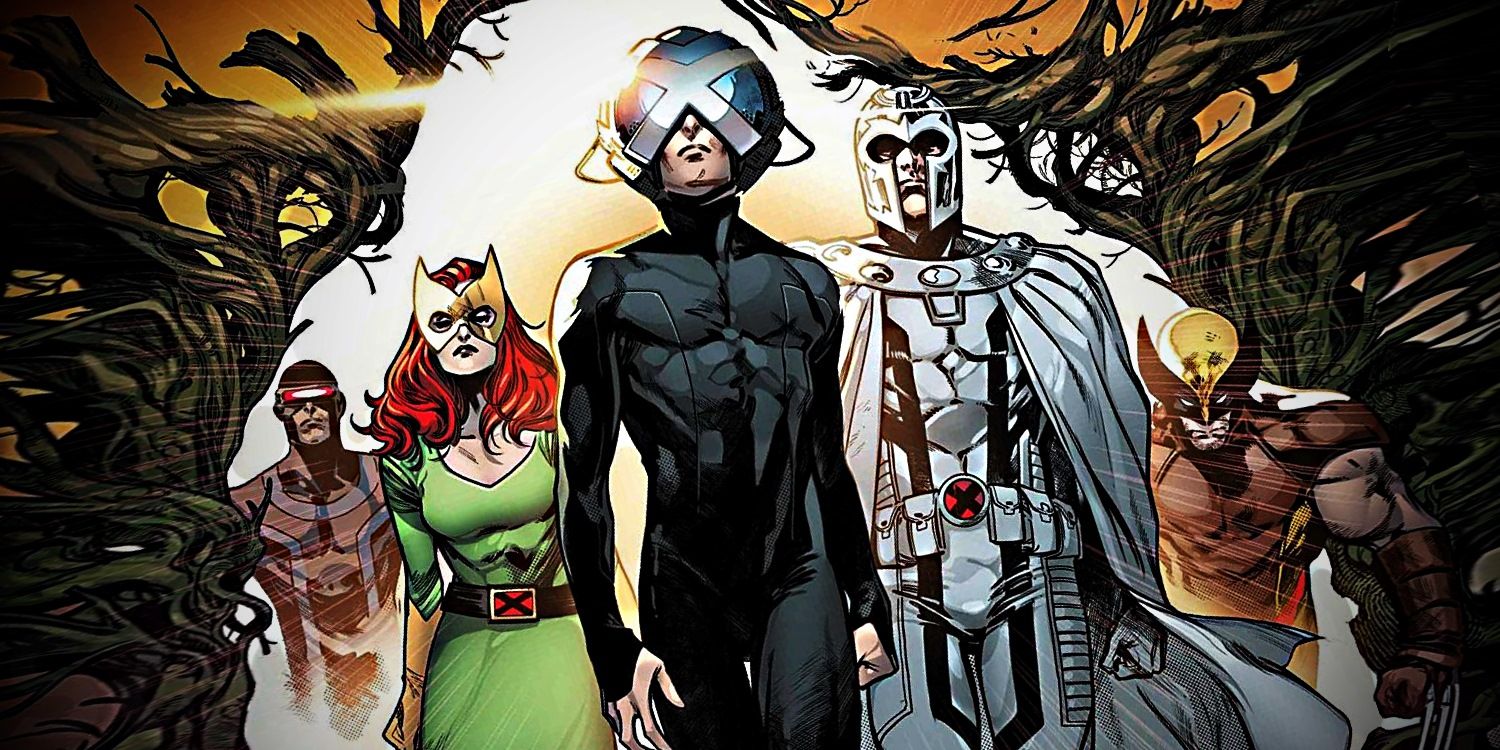The latest controversy over Captain America comics sparked by former Superman actor Dean Cain should serve as a reminder that comic books have always been political - and always should be. "There is nothing new under the sun," the old proverb declares, "It's all been done before." There are certainly times when political debate tends to prove that point, particularly when it comes to the discussion of comic books.
By now, the debate can almost be scripted in advance. It will be kicked off by a political point made in a comic book that tends to reflect on American self-identity, say Captain America (who literally wears the flag as a costume) or Superman (who frequently asks just what the "American Way" he's supposed to stand for really looks like). Right-wing commentators will complain at the "new" political direction, and it will typically hit Fox News, where it will be discussed by people who later admit they've never read the comic they're talking about. The latest furor started because of a page of The United States of Captain America, in which Steve Rogers reflected on the American Dream.
A lot of heat will be generated, but not much light. And here's the irony; when the debate has been forgotten because commentators have moved on, the only thing they will have demonstrated is that they really don't know comic books. Because there's nothing new about comics being political - indeed, they always have been.
The History of Comic Books
Even a cursory glance at the history of comics proves they've always been political. In his classic book Understanding Comics, Scott McCloud suggests a comic is best understood as sequential images that tell a story or convey a message. Going by that definition, the first comic strips were often satirical, motivated by strong social concerns, and modern classics can be pretty weighty - take, for example, Art Spiegelman's Maus, based on the experiences of Spiegelman's father as a Polish Jew during the Second World War. It's heartbreaking reading, but essential in that it reminds readers of horrors that must not be forgotten.
Of course, when most people talk about comic books, they aren't referring to Maus. Instead, they're actually discussing one particular part of the comic book industry: superhero comics, unarguably the most influential in terms of popular culture. But again, these comics have always been political. Captain America was socking Hitler on the jaw nearly a year before the United States had actually joined the Second World War, a deliberate political statement by his creators. "We’ve lost some context over the years because of the passing of time," Marvel's Tom Brevoort told The Washington Post. "Today, this would be like putting Vladimir Putin or somebody on a comic-book cover and vilifying him. Hitler was then a standing world leader with an impressive military machine behind him and a number of sympathizers in the U.S." Some of those sympathizers turned up at the offices threatening to rough up artist Jack Kirby (they ran away before he got downstairs).
Or what about Superman? Jerry Siegel and Joe Shuster's Superman started out fighting for social justice as much as anything else, and he took on everything from corrupt politicians to slum lords. "It's not entirely your fault that you're delinquent," Superman told some criminals in Action Comics #8. "It's these slums - your poor living conditions - if only there was some way I could remedy it--!" Of course, it didn't take long for Superman to become a symbol of "Truth, Justice, and the American Way," and with that statement came a responsibility the best writers have always taken seriously. What is the "American Way" Superman stands for? What does it mean to be truly American? Naturally, that's meant Superman comics have waded into the culture wars, as America seeks to define and redefine itself.
Superhero Stories As Commentary
Part of the problem, of course, is that unfortunately people still tend to look down on superhero comics. There's a general assumption that the books are simply super-powered brawls, with little depth to them, and that "serious" discussion should be happening in other formats of literature. Not only is this a rather snobbish perspective, it's also flawed on its most basic level - because it fails to understand why certain characters resonate with popular culture in the first place.
At heart, every superhero has what can be called an irreducible core; a central idea that they stand for, and that readers find themselves drawn to. A powerful core concept resonates with the readers and draws them into the character's world; it's why patriotic heroes like Captain America and Superman are successful in the first place, because the idea of America is such a strong one. But this necessarily means the best comics will be the ones that interrogate their core concept, that challenge the heroes to choose whether to be true to themselves or not, and as such serve as mirrors to similar debates in popular culture. Again, when you look at the history of Captain America, you see countless occasions when Steve Rogers has asked himself just what it means to be Captain America, and just what country he's supposed to be standing for in the first place. In the wake of the Watergate scandal, Rogers abandoned his Captain America identity outright and was replaced by John Walker, who symbolized a flawed "might-means-right" attitude that ultimately tarnished his heroism. His story has recently been adapted into the MCU, in the Disney+ TV series The Falcon & the Winter Soldier.
But this idea of a "core concept" doesn't just stand for the patriotic heroes; you can find it everywhere you look. Take the X-Men, for example; "mutants" swiftly became a metaphor for inequality, and over the decades the X-Men's pursuit for mutant rights has been conflated with the fight against racism, sexism, homophobia, and countless other forms of prejudice. When Chris Claremont wrote his classic "God Loves, Man Kills," he had the heroes go up against a right-wing religious leader who was modeled on televangelists of the time, and the current X-Men books are exploring the theme of social justice in a rather more dramatic manner by having the mutants establish their own homeland. Any racist who follows the X-Men has most certainly missed their message.
Comic Books Will Always Be Political
All this means comic books will always be political. How could they not be, when their political messages and ideas lie at the heart of their appeal? The best comic book writers and publishers understand this, creating characters who resonate powerfully and telling tales that challenge rather than support popular culture. That doesn't mean they're all left-wing, of course, because there are some celebrated right-wing writers in comics as well - take, for example, Nathan Edmondson, notable for excellent mainstream runs of Black Widow and an iconic take on The Punisher, and who moved into comics after a career as an international politician.
And so, inevitably, comics will be drawn into the culture wars time and again. The mainstream media will only notice when the story is high-profile enough, and particularly when it features a patriotic superhero like Captain America whose stories question the nature of American self-identity. Ill-informed commentators will complain about the "new" political direction, and in doing so they'll be unwittingly confessing their ignorance, proving they have absolutely no familiarity with the comics they're talking about. Some fans will echo their complaints, people who read the comics when they were too young to notice the political themes, and they'll long for the simpler times that never truly existed at all. And the comics, oddly enough, will achieve exactly what their writers would have vaguely hoped for - inspiring people to think, to discuss, to question. Because comics are a form of art like any other, and art has both meaning and a social context.




